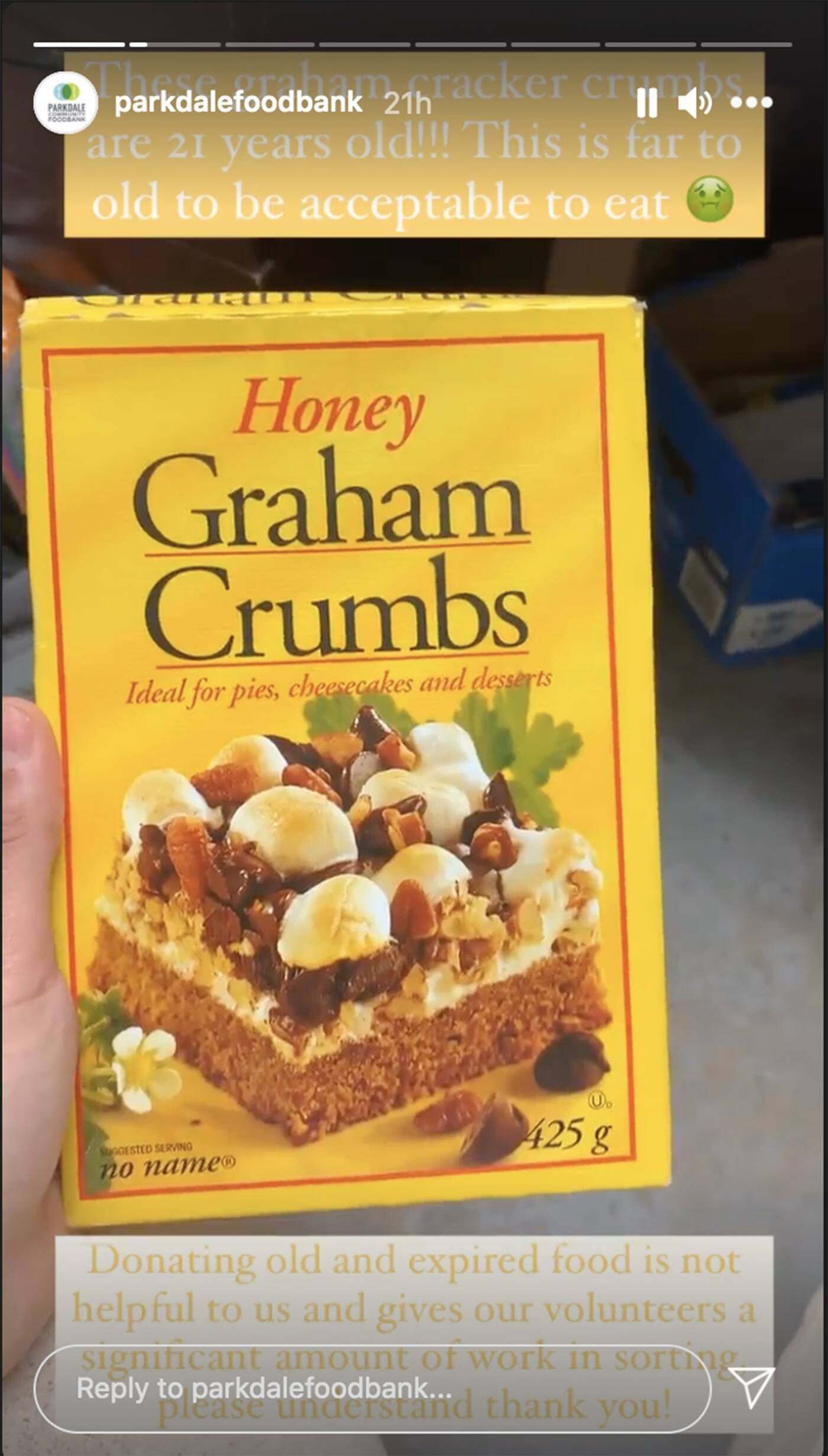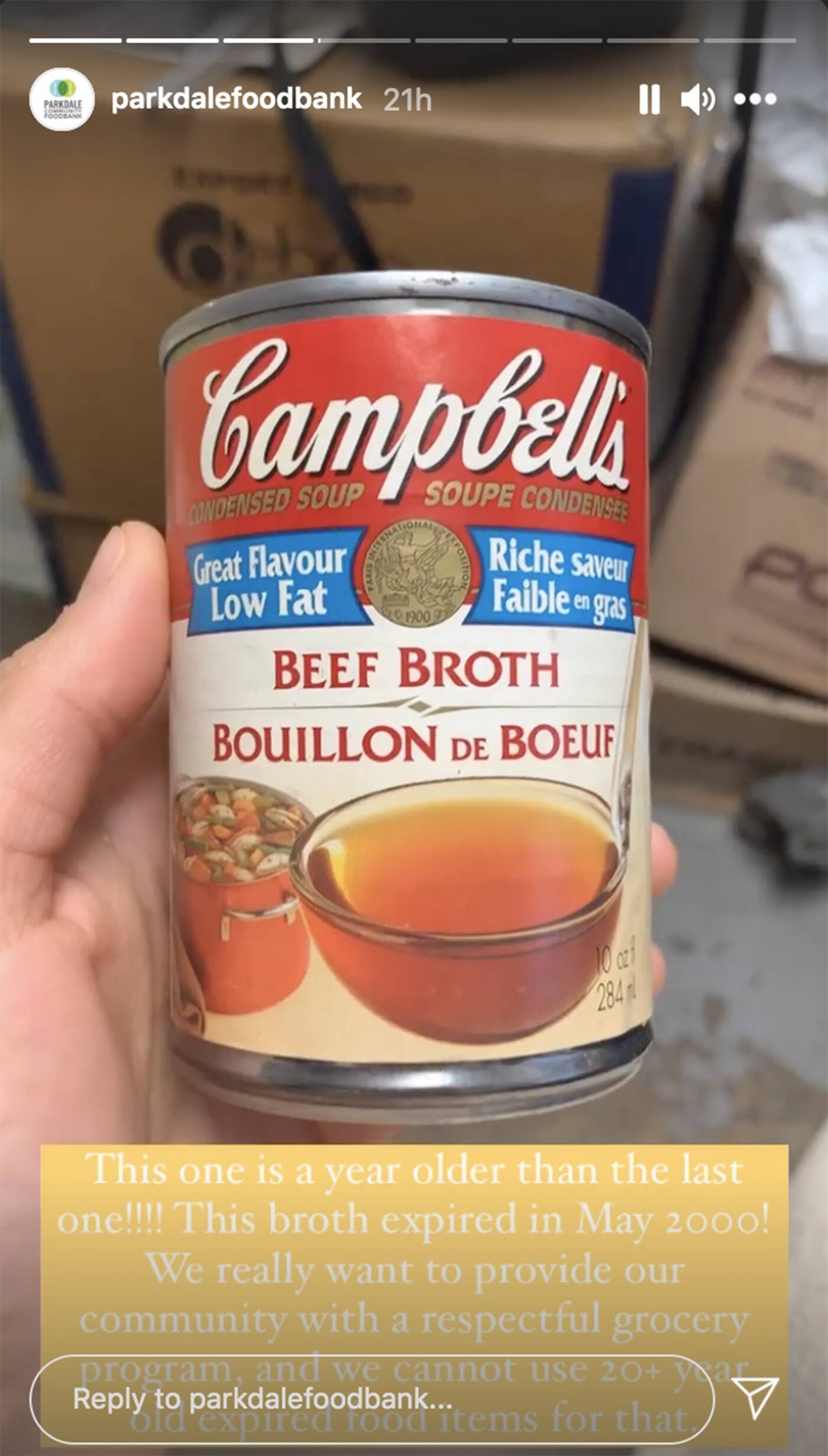
Food bank in Toronto asks people to stop donating food that expired decades ago
A charitable organization offering supplementary nutritional support to Toronto communities has had to issue a bit of a strange PSA to anyone donating foodstuff for those in need: please make sure it's actually fit for human consumption first.
The Parkdale Community Food Bank has apparently been finding some extremely out-of-date products in their donation bins that are cause for concern.
No, we're not talking about a box of crackers that expired a handful of months ago, or a can of legumes whose best before date came and went a couple of years ago; try decades.

"This is just another reminder to please not donate stuff that you wouldn't eat yourself," a volunteer said to the group's 49,5000 followers in an Instagram story on Wednesday during which they displayed a 21-year-old box of Graham Crumbs.
The No Name Brand product in the speaker's hand was visibly dated, with packaging only some of us will be able to remember from the '90s and early '00s.
"This is far too old for it to be acceptable to eat anymore, and this is just not something that I consider right or something that I would provide for my clients," they continued, adding that donating these types of items just creates more work for those who have to sort through the food.
Next up was a can of beef broth with a shocking best before date of May 2000, meaning that it was likely put on a grocery store shelf about three years earlier, in 1997.
Though canned goods can be safe to consume a few years after their best by date, 21 years is definitely well beyond this window.
 "We really want to provide our community with a respectful grocery program," a caption over the video said. "And we cannot use 20+ year old expired food items for that."
"We really want to provide our community with a respectful grocery program," a caption over the video said. "And we cannot use 20+ year old expired food items for that."
Though donations are, of course, graciously appreciated, the organization does have a point — there isn't likely anyone who would want to be around when that old can of beef broth is finally cracked open, let alone who would want to eat it.
Latest Videos
Latest Videos
Join the conversation Load comments







